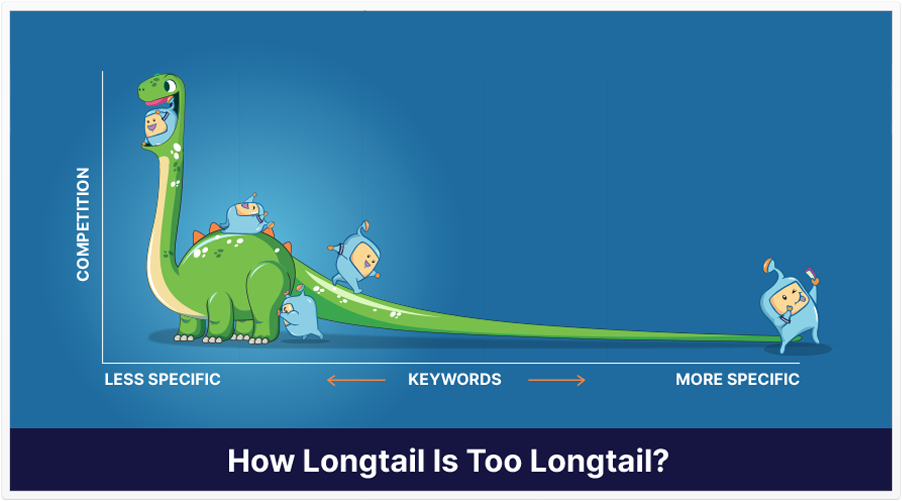
Longtail keywords phrases, which are said to be phrases with multiple words (usually 3 or more, but it depends on the niche sophistication) are typically keywords with less direct competition. That’s why so many newcomers are asked to target such keywords.
One thing about longtail keyword phrases is that, if you have many dozens of them in a specific market or niche segment, there could be a lot of overlap in those keywords.
For example, let’s suppose that you have a list of 20 longtail keyword phrases that you’d like to target, and you wanted to dedicate one page to each longtail. Each keyword phrase is 4 or 5 words long.
But, the majority of your keyword phrases have 3 or 4 keywords in common.
That’s quite a bit of overlap.
In SEO, there’s something known as keyword cannibalization, which is when pages within a website can rank for the same query and compete against themselves.
(Don’t get me wrong: it’s great if you have multiple pages on a search results page for a single query. However, it’s not as good when the search engines can pick any of 2 or more pages, and are not sure which one to display, so instead they rank another site higher than either of your pages.)
This is something that was spoken to on Google’s most recent office-hours Q&A-style session, where webmasters and small business owners got to ask a Googler (John Mueller) a range of questions.
At roughly the 20:11 mark, a participant asked a question that, at first, seemed like a question about duplicate content, but which John Muller said wasn’t really one on duplicate content.
So, this participant has a site about Apple products, and in this case, about the repair of iPhones.
Hypothetically, he has a page on each of these terms:
iPhone 6 repair
iPhone 7 repair
iPhone 8 repair
iPhone 8 plus repair
iPhone X repair
iPhone XR repair…
…and so on.
I think you get the point that there’s a bit of overlap in these long-tail keywords.
Here’s what John Mueller had to say about this situation:
“I don’t think we would see it as being kind of like purely duplicate content, but what is probably happening is you’re competing with yourself…”
That speaks to keyword cannibalization. John continued: “…and you’re going into a situation where someone is searching for, maybe, iPhone screen repair or something like that, and instead of having one really strong page on this topic, you have multiple pages on that topic, and that means all of those multiple pages have to rank on their own, which means if the competition is very strong for some of those queries then your pages will have a hard time.”
Consider Upper- or Higher-Level Keyword Competition
So, in my opinion, that’s the key point: keyword cannibalization is really a big issue depending on how competitive the upper-level term is. If, in this case, the competition for iPhone screen repair is very strong, then you want to have a very strong, single page for that phrase.
In fact, that’s what Muller goes on to say:
“…whereas, if you have one really strong page on this topic where you say, ‘Well, it’s like this is for these five models of iPhones’ and along the way in the page you say, ‘Well for this iPhone model it looks like this, for the other iPhone model it looks like that,’ then you kind of have those different variations covered, but you have one strong page rather than multiple pages that are kind of medium strong, so that’s usually the direction where I would head, and say…well…try to combine the content into kind of stronger pieces so that you can compete better in that area especially if this is an area where the competition is very strong…”
So, there you have it: targeting long-tail keywords can be strategic. However, doing so can be very limiting where, for a competitive higher-level keyword phrase, a handful of pages, each dedicated to a longtail keyword phrase, compete against themselves, and lose out to a strong page that covers all of those longtail keyword phrases.